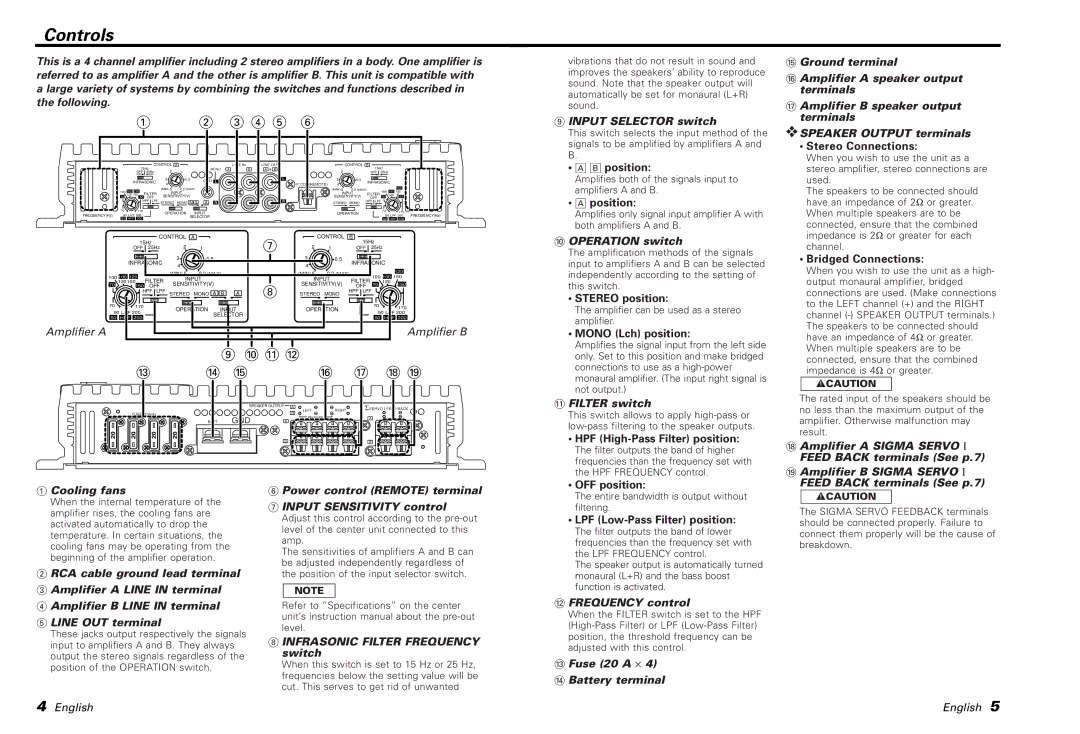KAC-PS500F specifications
The Kenwood KAC-PS500F is a highly regarded amplifier that caters to audiophiles seeking quality sound in a compact design. This five-channel amplifier is engineered to deliver impressive performance while maintaining a sleek and low-profile design ideal for various vehicle installations. One of the standout features of the KAC-PS500F is its power output. It boasts a maximum power rating of 500 watts, which allows it to drive multiple speakers effectively, ensuring high-quality audio reproduction across all channels. With a dynamic and powerful sound output, it enhances the overall listening experience in any automobile.The Kenwood KAC-PS500F employs Class D technology, which maximizes efficiency and reduces heat generation while maintaining powerful audio performance. Class D amplifiers are known for their compact size and high power output, making them a popular choice among car audio enthusiasts. The compact size of the KAC-PS500F, measuring just under 20 inches, allows for versatile installation options without compromising on audio quality or performance.
Another significant feature of the KAC-PS500F is its built-in low-pass and high-pass filters. This technology enables users to customize the audio output to suit their preferences and types of speakers used. Users can tweak the settings to control the frequency range, allowing for a more refined and personalized listening experience. Furthermore, the amplifier includes a bass boost function, adding depth and richness to lower frequencies, perfect for those who enjoy a powerful bass response in their audio setup.
In terms of installation, the KAC-PS500F is designed for user-friendly connection with easy access to terminals for power, speaker outputs, and audio inputs. It is equipped with a signal-sensing turn-on option which allows the amplifier to activate automatically when it detects an audio signal, simplifying the wiring process for the installer.
The robust build of the KAC-PS500F features a sturdy heat sink to manage thermal performance effectively, ensuring reliability during long listening sessions. Overall, the Kenwood KAC-PS500F stands out as a top choice for those seeking a blend of power, efficiency, and compactness in a car amplifier, providing exceptional audio performance that enhances any music experience while on the road.

